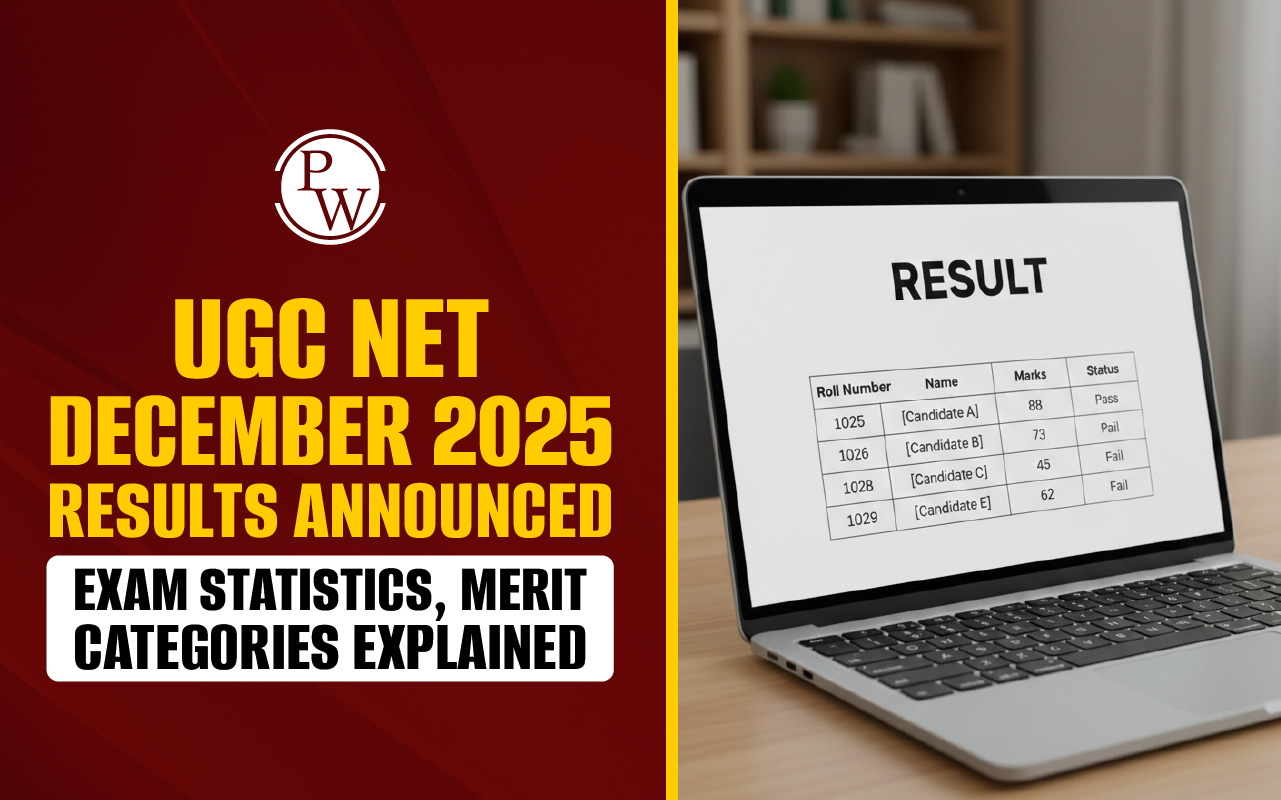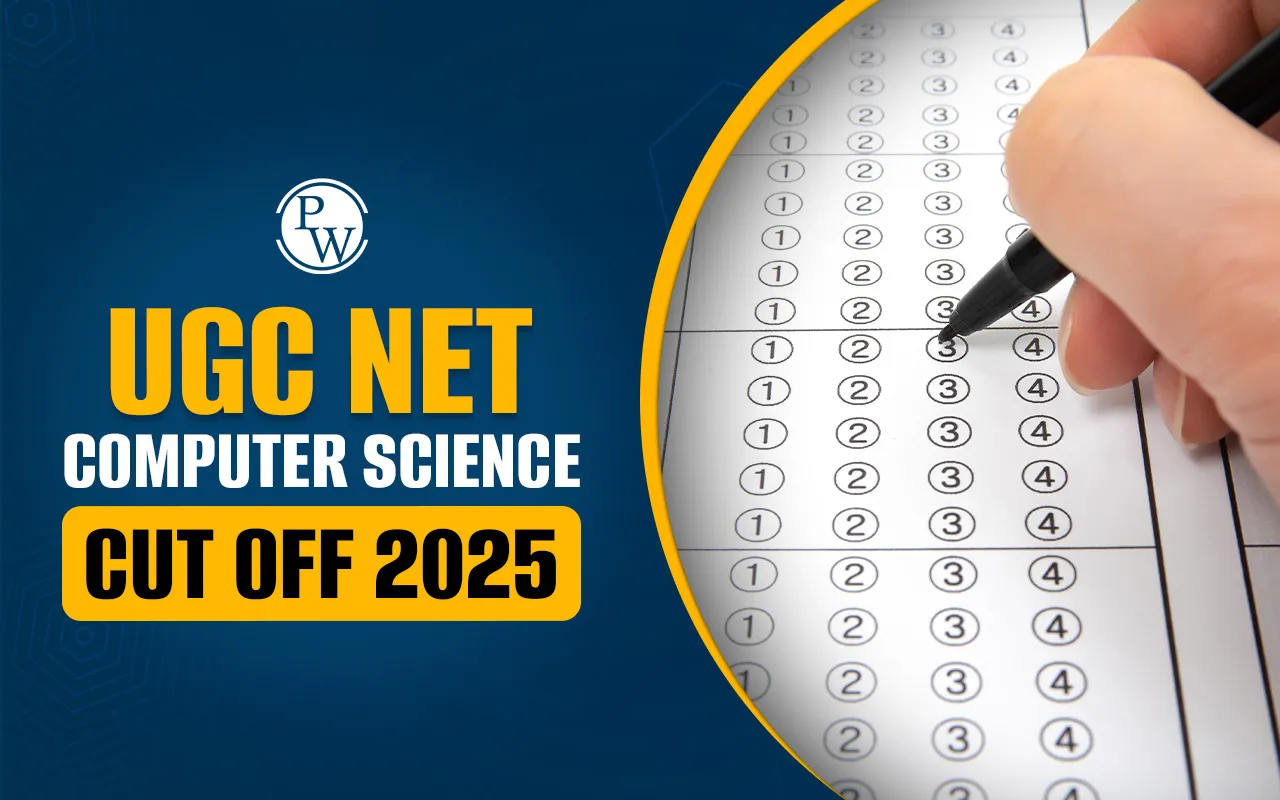
UGC NET Education Syllabus 2025: The UGC NET December 2025 exam, conducted by the National Testing Agency (NTA), has its application window open from October 7 to November 7, 2025. Candidates can make corrections in their applications from November 10 to 12. The exam will be computer-based, covering two papers that test teaching aptitude and subject knowledge. The detailed UGC NET Education syllabus for 2025 is available for download in both Hindi and English PDFs. Preparing with the latest syllabus will help candidates excel in their exam and secure eligibility for Junior Research Fellowship and Assistant Professor posts.
UGC NET Education Syllabus 2025
The UGC NET December 2025 exam syllabus covers both Paper 1 and Paper 2, designed to test candidates on teaching aptitude and subject expertise respectively. The exam is computer-based, with applications open from October 7 to November 7, 2025, and a correction window from November 10 to 12. Aspirants preparing with the latest UGC NET Syllabus 2025 available in Hindi and English can strengthen their understanding of education theories, pedagogy, research methods, and educational psychology to maximize exam performance.
UGC NET Education Syllabus 2025 Overview
The National Testing Agency (NTA) will conduct the UGC NET 2025 examination, which is held twice a year at the national level. The exam is conducted online and is applicable for the recruitment of Assistant Professors and candidates pursuing Junior Research Fellowship (JRF).| UGC NET Education Syllabus 2025 Overview | |
| Conducting Body | National Testing Agency (NTA) |
| Exam Name | UGC NET 2025 |
| Post Category | UGC NET Education Syllabus 2025 |
| Posts | Assistant Professor and Junior Research Fellowship (JRF) |
| Exam Level | National |
| Exam Frequency | Twice a year |
| Mode of Exam | Online |
| Medium of Exam | English and Hindi |
| Time Duration | 3 Hours |
| Number of Papers and Total Marks |
|
| Negative Marking | No Negative Marking |
| Official Website | ugcnet.nta.nic.in |
UGC NET Education Syllabus 2025 PDF
The UGC NET Education Syllabus 2025 PDF is available for candidates preparing for the exam. It includes topics like Education Studies, Teaching Methods, Research, and Inclusive Education. The syllabus helps in understanding important subjects for both Paper 1 and Paper 2. Candidates can download the PDF from the provided link below for detailed topics.UGC NET Education Syllabus 2025 PDF in Hindi
The UGC NET Education Syllabus 2025 PDF in Hindi is available for candidates preparing for the exam. It covers important topics like Education Studies, Teaching Methods, Research, and Inclusive Education. The syllabus helps in understanding the subjects for Paper 1 and Paper 2. Candidates can download the syllabus in Hindi from the given below link. Studying the syllabus properly will help in better exam preparation. Check the syllabus details and download the PDF for easy access.UGC NET Education Syllabus 2025 Unit Wise
The UGC NET Education Syllabus 2025 is divided into different units covering important topics like Education Studies, Teacher Education, Research, and Inclusive Education. It includes concepts from philosophy, psychology, curriculum development, and technology in education. Candidates should study each unit carefully to understand key subjects for the exam. Check the unit-wise syllabus details below.| UGC NET Education Syllabus 2025 Unit Wise | ||
| Unit | Section | Topics |
| Unit 1 | Education Studies |
|
| Unit 2 | History, Politics, and Economics of Education |
|
| Unit 3 | Learner and Learning Process | Growth and Development
|
| Unit 4 | Teacher Education | Teacher Education
|
| Unit 5 | Curriculum Studies |
|
| Unit 6 | Research in Education |
|
| Unit 7 | Pedagogy, Andragogy, and Assessment |
|
|
Unit 8 |
Technology for Education |
Educational Technology
|
| Unit 9 | Educational Management, Administration and Leadership |
|
| Unit 10 | Inclusive Education |
|
UGC NET Education Exam Pattern 2025
| UGC NET Education Exam Pattern 2025 | |||
| Paper | Sections | Number of Questions | Maximum Marks |
| Paper 1 | Teaching Aptitude, Research Aptitude, Reading Comprehension, Communication, Reasoning (including Maths, Logical Reasoning, Data Interpretation, Information & Communication Technology (ICT), People & Environment, Higher Education System: Governance, Polity & Administration | 50 | 100 |
| Paper 2 | Education | 100 | 200 |
UGC NET Education Minimum Qualifying Marks
UGC NET 2025 prescribes the minimum qualifying marks. The minimum qualifying marks for the examination are determined based on category-wise criteria. Here is an overview of UGC NET Education Syllabus 2025 Minimum Qualifying Marks| UGC NET Education Minimum Qualifying Marks | |
| Category | Qualifying Marks |
| General | 40% |
| OBC/SC/ST | 35% |









